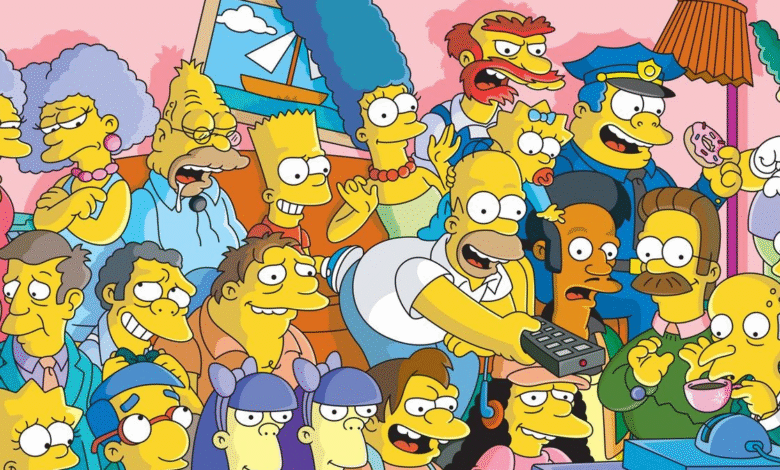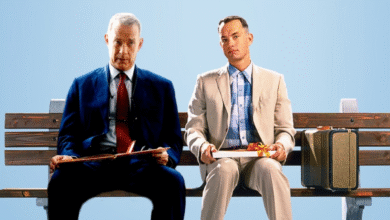The Ultimate Guide to Simpsons Characters

If you grew up watching television anytime in the past few decades, chances are you’ve come across The Simpsons. It’s not just a cartoon; it’s a cultural phenomenon. One of the key reasons for the show’s lasting popularity is its rich cast of Simpsons characters. These characters aren’t just funny yellow figures; they represent a wide range of personalities, cultural references, and satirical insights into real-world issues. In this guide, we dive deep into the lives, quirks, and significance of the most iconic Simpsons characters and what makes them so special.
Meet the Simpsons Family
The foundation of the show is the family itself: Homer, Marge, Bart, Lisa, and Maggie. Each of these Simpsons characters has carved out a space in pop culture and helped shape the show’s direction over the years.
Homer Simpson: The Lovable Oaf
Homer Simpson is the face of the show in many ways. He’s clumsy, impulsive, not the brightest bulb, but endlessly entertaining. Working at the Springfield Nuclear Power Plant, Homer’s daily life is filled with blunders, donuts, and “D’oh!” moments. Yet, despite his many flaws, he genuinely loves his family, even if he often forgets to show it.
What makes Homer stand out among Simpsons characters is his versatility. Over the years, he’s been portrayed as everything from an astronaut to a rock star, showing the show’s creative freedom. He’s the embodiment of the modern, flawed American everyman.
Marge Simpson: The Moral Compass
Marge is the glue that holds the Simpson family together. With her sky-high blue hair and ever-patient demeanor, she represents the voice of reason in the chaotic world of Springfield. She’s often portrayed as the underappreciated homemaker, though she’s had her fair share of adventures as well, from police officer to political activist.
Among Simpsons characters, Marge serves as the emotional backbone of the show. Her character often reflects societal expectations of women, and through her, the show tackles feminist themes, motherhood, and morality.
Bart Simpson: The Mischievous Rebel
Bart Simpson, the ultimate troublemaker, is arguably one of the most iconic Simpsons characters. His catchphrases like “Eat my shorts!” and “Don’t have a cow, man” defined a generation. He’s rebellious, rude, and rarely learns his lesson, but his pranks and antics make for endless laughs.
Despite his constant misbehavior, Bart has layers. He’s occasionally shown to have emotional depth and vulnerability, especially in episodes where he tries to connect with his father or earn his teacher’s respect. He represents youthful rebellion in its purest form.
Lisa Simpson: The Intellectual Idealist
Lisa is the most intelligent member of the family and one of the few Simpsons characters who consistently brings depth and intellect to the show. A vegetarian, Buddhist, feminist, and saxophonist, Lisa is a true overachiever. She’s often seen struggling to find her place in a town that doesn’t seem to value intellect.
Lisa’s character allows the show to explore serious themes like environmentalism, politics, and philosophy. She’s a beacon of progressivism and a symbol of how challenging it can be to stick to your principles.
Maggie Simpson: The Silent Star
Though she rarely speaks, Maggie has had her moments in the spotlight. She’s the baby of the family, often seen with her pacifier. But don’t underestimate her; Maggie has shot Mr. Burns, saved Homer from drowning, and even shown remarkable intelligence in several episodes.
Maggie is one of the most intriguing Simpsons characters because she communicates volumes without words. She’s mysterious, clever, and undeniably adorable.
Springfield: A Town Full of Personality
Outside the Simpson household, the town of Springfield is bustling with unique Simpsons characters, each adding their own flavor to the show. These side characters are part of what makes the series so endlessly watchable.
Mr. Burns: The Evil Tycoon
Mr. Charles Montgomery Burns is the greedy, frail, and ancient owner of the Springfield Nuclear Power Plant. He’s one of the richest and most powerful Simpsons characters, and certainly one of the most villainous. He’s the classic evil billionaire, complete with a sycophantic assistant, Smithers, and a tendency to release the hounds.
What makes Mr. Burns interesting is how he serves as a satire of corporate greed and the American elite. His interactions with Homer are comedy gold, often highlighting the absurdity of workplace hierarchies.
Ned Flanders: The Friendly Neighbor
Ned Flanders is the polar opposite of Homer. He’s kind, devoutly religious, overly polite, and frustratingly perfect. Yet, despite being mocked by Homer constantly, Ned remains a good friend and neighbor.
Among Simpsons characters, Ned serves as both comic relief and moral commentary. The show uses him to explore religion, tolerance, and what it means to be a good person in a cynical world.
Moe Szyslak: The Gruff Bartender
Moe runs Moe’s Tavern, Homer’s favorite hangout. He’s grumpy, lonely, and has questionable hygiene, but he’s also oddly lovable. He’s been involved in countless subplots, from romance to crime.
Moe is one of those Simpsons characters that grows on you. He may be rough around the edges, but there’s vulnerability beneath his crusty exterior. His bar has served as the backdrop for many pivotal scenes in the series.
The Children of Springfield
Kids in The Simpsons aren’t just filler; they have distinct personalities and storylines that often parallel real-life childhood experiences.
Milhouse Van Houten: Bart’s Loyal Sidekick
Milhouse is Bart’s best friend and frequent partner-in-crime. He’s nerdy, awkward, and hopelessly in love with Lisa. Despite his many social failings, Milhouse is a sweet, loyal friend.
Milhouse is a reflection of the every-kid who just wants to fit in. Among Simpsons characters, he embodies insecurity, hope, and the often painful awkwardness of growing up.
Ralph Wiggum: The Lovable Oddball
Ralph Wiggum is Chief Wiggum’s son, and one of the most quotable Simpsons characters. Known for lines like “I choo-choo-choose you,” Ralph is bizarre, unpredictable, and strangely profound.
Ralph’s randomness provides comic relief but also showcases the innocence and unpredictability of childhood. He’s one of the most meme-worthy characters in the series.
The Women of Springfield
The women of Springfield aren’t just background characters. They have their own story arcs, personalities, and moments of brilliance.
Patty and Selma Bouvier: Marge’s Sarcastic Sisters
These chain-smoking DMV workers are Marge’s older twin sisters. They despise Homer and never miss a chance to make his life miserable. Their dry wit and bitterness add a sharp edge to the show.
Patty and Selma are among the most underappreciated Simpsons characters. They represent independence and the reality of middle-aged life with all its cynicism and complexity.
Edna Krabappel: The Jaded Teacher
Edna was Bart’s long-suffering teacher, known for her sarcastic remarks and unfiltered attitude. Despite her professional frustrations, she had a passionate personal life and a brief romantic relationship with Ned Flanders.
She’s a character that highlights the challenges teachers face in underfunded systems, making her one of the more realistic Simpsons characters.
Pop Culture and Guest Stars

One of the unique features of The Simpsons is how seamlessly it blends real-life celebrities into its fictional universe.
Over the years, countless celebrities have appeared as themselves or as fictional Simpsons characters. From Michael Jackson to Lady Gaga, these appearances often add a layer of satire or cultural commentary.
These guest stars enrich the show and make Springfield feel like the center of the universe. They also keep the series relevant across generations.
Quotes From Simpsons Characters
“D’oh!” – Homer Simpson
“If anyone wants me, I’ll be in my room.” – Lisa Simpson
“Hi-Diddly-Ho, neighborino!” – Ned Flanders
“I bent my Wookiee.” – Ralph Wiggum
“Worst. Episode. Ever.” – Comic Book Guy
Table: Most Iconic Simpsons Characters by Role
| Character | Role | Notable Trait |
|---|---|---|
| Homer Simpson | Father | Loves donuts, impulsive |
| Marge Simpson | Mother | Patient, moral compass |
| Bart Simpson | Son | Prankster, rebellious |
| Lisa Simpson | Daughter | Smart, idealistic |
| Maggie Simpson | Baby | Silent but smart |
| Mr. Burns | Boss | Evil, greedy |
| Ned Flanders | Neighbor | Religious, overly nice |
| Moe Szyslak | Bartender | Grumpy, loyal |
| Milhouse | Friend of Bart | Awkward, nerdy |
| Ralph Wiggum | Classmate of Lisa & Bart | Quirky, unpredictable |
Why Simpsons Characters Continue to Resonate
There’s a reason Simpsons characters continue to hold a place in pop culture. They aren’t static. Over the years, we’ve seen them grow, evolve, and sometimes regress, just like real people. Their storylines reflect the changing times, covering everything from politics to pop culture.
They are exaggerated yet relatable. Whether it’s Homer’s work woes or Lisa’s desire to make a difference, we see parts of ourselves in these characters.
FAQs About Simpsons Characters
Who is the most popular character in The Simpsons?
Homer Simpson is often considered the most popular due to his comedic appeal and wide recognition.
Are the Simpsons characters based on real people?
Some are inspired by real individuals or stereotypes, but most are fictional and exaggerated for satire.
Why are the Simpsons characters yellow?
The creators chose yellow to make the characters instantly recognizable and to stand out while channel surfing.
Which Simpsons character has appeared in the most episodes?
Homer has appeared in virtually every episode, making him the most featured character.
Do the Simpsons characters age?
No, the characters are perpetually the same age despite the show running for decades.
Conclusion
The enduring charm of Simpsons characters lies in their ability to reflect the humor, struggles, and quirks of everyday life. From the relatable flaws of Homer to the intellect of Lisa and the eccentricity of Springfield’s residents, these characters continue to resonate across generations. Their stories not only entertain but also offer sharp cultural insights, making The Simpsons a timeless classic in the world of animation.





